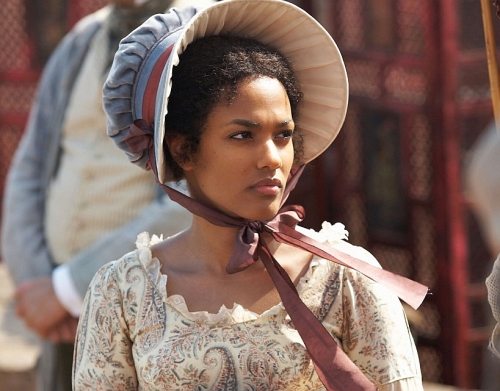I spent yesterday with my two-year-old grandson, doing puzzles, reading books, and cleaning up a mess that the family dog got to before I did. (That’s probably more than you wanted to know.) There was also a meltdown, but at least one of the stories we read together dealt with meltdowns.
High Five magazine, a descendant of the Highlights magazine that I remember from my own childhood, currently has a story about a boy who learns to take three deep breaths when he gets flustered. The story has very little artistry to it but I appreciated its didactic aims. I was in favor of anything that could help me in the moment of crisis.
My wife, who is an expert in early childhood education, informs me that deep breaths are useful because young children have trouble separating themselves from their emotions. The “executive function” of their brains is not yet active so they need external help. The first step to calming them down is to hug them, but there are other things—like getting them to breathe deeply—that are useful. My son skillfully uses “time outs,” which is what Max’s mother resorts to in Where the Wild Things Are (although Darien doesn’t deprive Alban of dinner).
As Alban and I breathed together, I thought of Charles Dickens’ Little Dorrit, which I’ve been listening to as I travel. Mr. and Mrs. Meagles have an adopted daughter (she has been abandoned by her mother) who is jealous of the love they lavish on their natural daughter. Though they try to be sensitive, she periodically becomes hysterical, directing against them her anger against her mother. One of Mr. Meagles’ strategies is to have her count to five-and-twenty, as in the following scene:
‘Hey?’ cried Mr Meagles. ‘Count another five-and-twenty, Tattycoram.’
She might have counted a dozen, when she bent and put her lips to the caressing hand. It patted her cheek, as it touched the owner’s beautiful curls, and Tattycoram went away.
‘Now there,’ said Mr Meagles softly, as he gave a turn to the dumb-waiter on his right hand to twirl the sugar towards himself. ‘There’s a girl who might be lost and ruined, if she wasn’t among practical people. Mother and I know, solely from being practical, that there are times when that girl’s whole nature seems to roughen itself against seeing us so bound up in Pet. No father and mother were bound up in her, poor soul. I don’t like to think of the way in which that unfortunate child, with all that passion and protest in her, feels when she hears the Fifth Commandment on a Sunday. I am always inclined to call out, Church, Count five-and-twenty, Tattycoram.’
Mr. Meagles is a “scoops and scales” businessman whose imagination is limited. Counting to twenty-five works for Tattycoram as a child but ceases to function when she gets older and when she seduced away by the nefarious Miss Wade. Mr. Meagles shouldn’t be overfaulted, however. Like many parents, he does his best with the understanding he has. If his big heart and his empathy for Tattycoram’s situation are not enough deter her from the self-destructive track she is on, then she probably can’t be saved but just welcomed back in after she hits bottom. I haven’t finished the book yet but she appears destined for a fate similar to that of, say, Little Em’ly in David Copperfield.
Alban, luckily, is still young enough to be excited about the breathing exercise. I have full confidence that his executive function will start operating in a few years.


